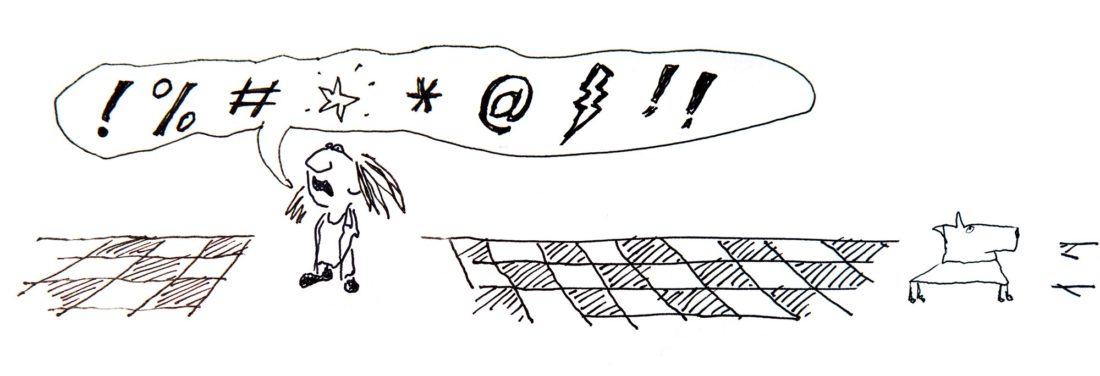
The art of obscenity
Last winter, my Facebook feed was overwhelmed by contagion. Scanning the posts, it was clear that an alarming percentage of my American, English, and Italian friends were sick with the flu. And while I felt for them, the thing I really noticed was how differently friends from each country talked about their illness. Americans were sure to share details, for instance, “I’m dying. Never been this sick. The stuff I’m coughing up is GREEN.” The Brits were, well, British. “Been in hospital for 10 days. A bit under the weather.”
But the Italians… They were all about the balls. (And not the balls one uses to play sports.) Balls are a vital part of talking about a wide range of subjects, but they turn out to have a special place in capturing the suffering that comes with the flu. A female friend posted: “Ho due palle gonfie di ste teste di cazzo … Va a finire male me lo sento.” It means: “I have two swollen balls thanks to heads of dicks. This will not end well, I can feel it.” Italians love to swear, and Tuscans are known to be particularly bold and colorful. I’ve found grandmothers to be particularly impressive.
This phrase has uses beyond illness, and it also is frequently used to express “I am annoyed by these stupid people.” I highly recommend using it under your breath during the next meeting you are in when someone is annoying you. You have equal rights to the phrase whether you’re a man or a woman. I’ve recorded my son Sebastian saying each of these so that you can get it right.
Interested in dabbling in Italian testicle-based phrases, but need something a little lighter? You could try “che palle” meaning “what balls” or “how annoying.” (It’s also the name of a chain of arancini (fried rice balls) shops in Sicily.
Other phrases you might want to know:
“Mi hai rotto le palle.” meaning “you have broken my balls.” This is used in response to a distinct action that has happened.
If what is bothering you is more ongoing feel free to use “Mi fai girare i coglioni,” “You have twisted my balls.”
And the ever useful “Tu sei un coglione.” “You are a ball.” (Yes, it’s singular.) A bit softer as it is commonly used, more like “You are an idiot.”
Ready to expand your ball-adjacent Italian vocabulary? Try “a cazzo di cane,” which means “like a dog’s dick.” It’s used frequently to describe a job done badly.
More on the Italian obsession with balls at a later date. Just a friendly reminder. These are not my words. I am a mere reporter, aiming to be as scientific as possible, in linguistic matters.






Nancy
September 2, 2018 at 3:59 pmSO much fun recording these with Sebastian!
Broitman Jessica
September 1, 2018 at 3:00 pmUnbelievable!